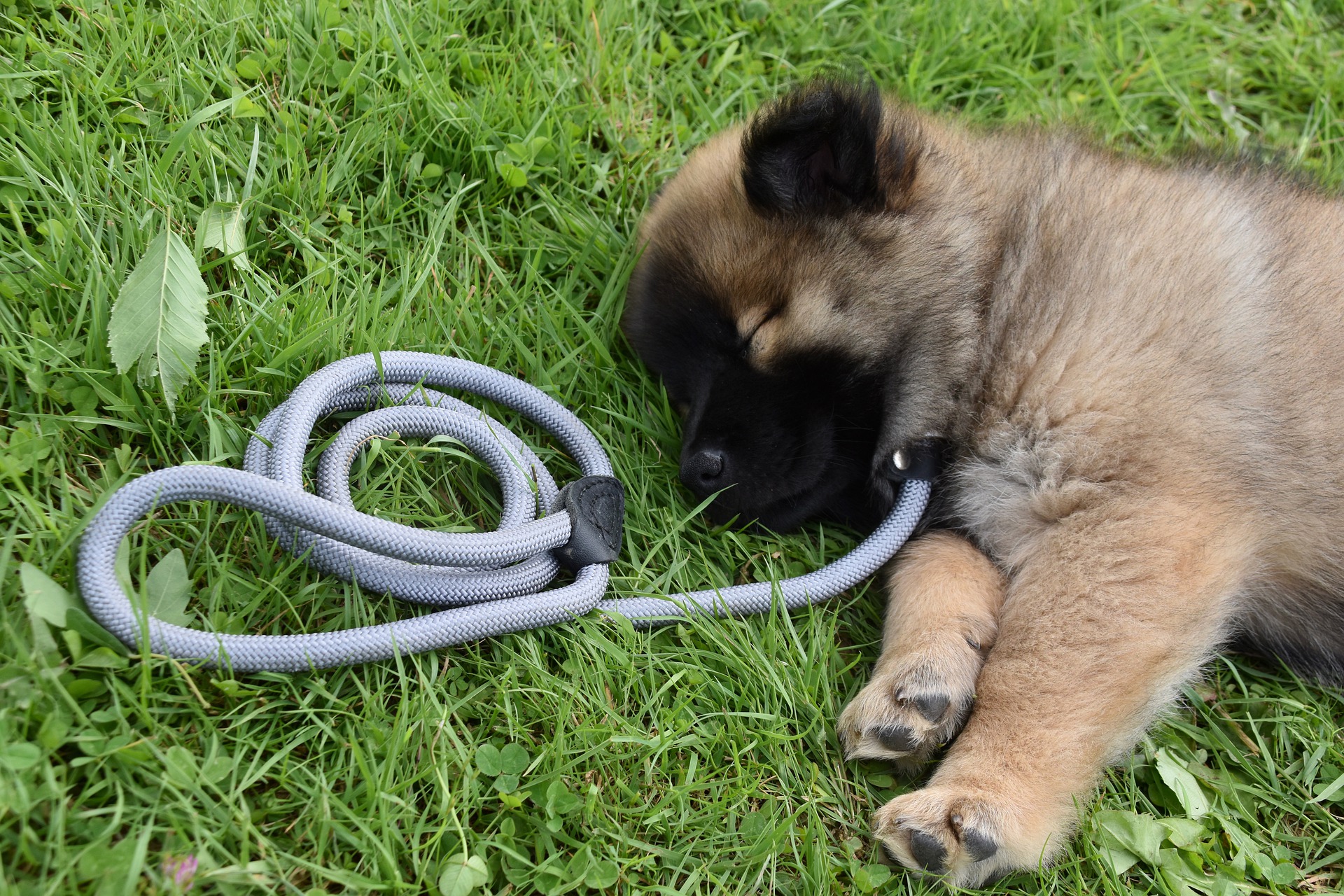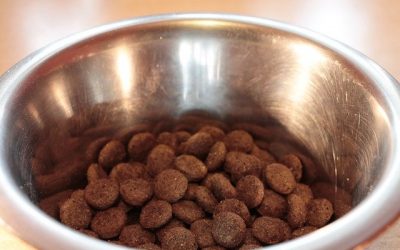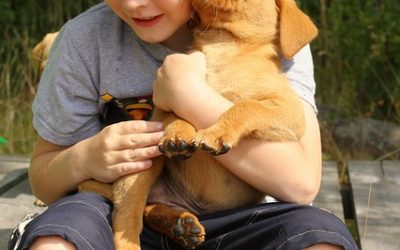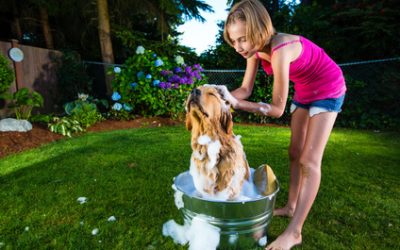Experiences your puppy encounters between the ages of 6 and 16 weeks can have a significant influence on his temperament and behaviour as an adult dog. A puppy’s long term development, relies on early socialisation. It’s just one of the many areas that requires 100% commitment from you, the owner. Ideally you should expose your puppy to as many things as possible, considering, what he may encounter as an adult dog. Eg. loud people, high energy children, lawn mowers, buses, garbage trucks, trains and their sounds etc.
While it’s impossible to expose a young puppy to absolutely everything he will ever encounter in life, the more bases you cover during the peak socialisation period, the more likely your puppy will be able to generalise and be reassured from his prior experiences in a new environment.
Physical handling and daily grooming are a big part of this stage. Without adequate socialisation and exposure to as many experiences as possible, your puppy may develop fear and aggression, when faced with another dog or a new situation.
Bad behavior in an adult dog, is the result of inadequate socialising as a puppy.
Why not enjoy a lifetime journey with a well behavoured canine companion, by enrolling your puppy into our Puppy Pre-School training program. After Puppy Pre-School, clients are invited to enrol in our next level of training, Basic Obedience Course.
Your Puppy is an Individual
We witness a range of different temperaments in our puppy training program, especially when they are off lead in our well supervised, puppy run.
Some puppies will be outgoing, some bold, some anxious, some nervous, some dominant and some submissive. We don’t allow bullying tactics ie. pouncing and jumping on each other. This can be overwhelming and frightening for a shy puppy or a new puppy. An over boisterous dominant puppy will not learn how to restrain his rough play. This can lead to problems when trying to socialise or introduce your puppy to other dogs later in life. Calm handling and controlled games with the family will assist.
Benefits of our Puppy Run:-
Develops co-ordination and reflexes
Improves balance
Awareness skills – running & turning
Learning to read other puppy’s body language
Exchanging subtle communication skills
Learning to read signals
Pacing
Social confidence
The golden rule with puppy socialising, is to be very aware of your puppy’s reaction to whatever you expose him to, this way, you can tone things down if your pup is overwhelmed by the situation or environment. Reward his bravery with a game or his favourite toy.
When you get it right, all new experiences should be a positive new learning encounter.
Socialising endeavours:-
Moving objects – bicycles, wheelchairs, prams, joggers, skateboards, vacuum cleaners, lawn mowers, whipper snippers, power tools, brooms, mops; Be mindful of the working dog breeds and their instincts to chase or herd, or follow shadows, don’t allow this to happen.
Noises – traffic, thunderstorms, sirens, doorbells, phones ringing, music and fireworks; ( there are a number of websites that have various sounds. Download and play soft for starters, moving the volume up gradually). Tip:- Changing the ring tone on your phone and mobile devices works very well.
Surfaces – tiles, carpet, wood, sand, wet surfaces, stairs.
People (children and adults of both sexes), crowds, people in uniform.
Other animals including birds.
REWARD GOOD BEHAVIOUR ALWAYS. You are looking for calm and confident, not frightened by anyone or anything.
Be alert for any hesitation, don’t force him, allow him to interact and approach at his own pace. Your puppy may have a very different view of any given situation, respect his view!
Nurturing
Puppy whines, you pick him up! NO, don’t do it.
Picking up or consoling a crying puppy who is not in pain or immediate danger can develop insecurity and separation anxiety behaviours.
Insecure dogs are dangerous, they don’t think, they react…….immediately!
Insecure puppies require a confidence building program. All family members should engage in training the basic commands of sit / stay / come / drop along with trick training, this is a great way to help foster self assurance in an insecure puppy and a great way for children to become involved.
Poorly socialised dogs are more likely to react with fear and aggression to unfamiliar dogs and people in the environment.
Conclusion
New things, whether it’s the environment, people, animals etc. need to be fun for your puppy.
Make sure he is in his comfort zone and encourage him to enjoy new and challenging experiences. Be aware, make the most of what is happening around him, take note of his response.
If you know a storm is brewing, bring out his favourite toys, and PLAY, turn the volume up on the TV or radio.
Take some favourite treats when out and about, calm and settle behaviour should be encouraged. Bonus treats should be offered for super calm behaviours.
No patting from strangers until you can see he is not fearful of them approaching.
If your pup is bold and perhaps inclined to be too exuberant, have him sit quietly before being offered a treat by you or another person. Well socialised pups live a more relaxed, peaceful and happy life, than dogs who are stressed and anxious by anything in the environment.
written by Lee Hettiger





0 Comments